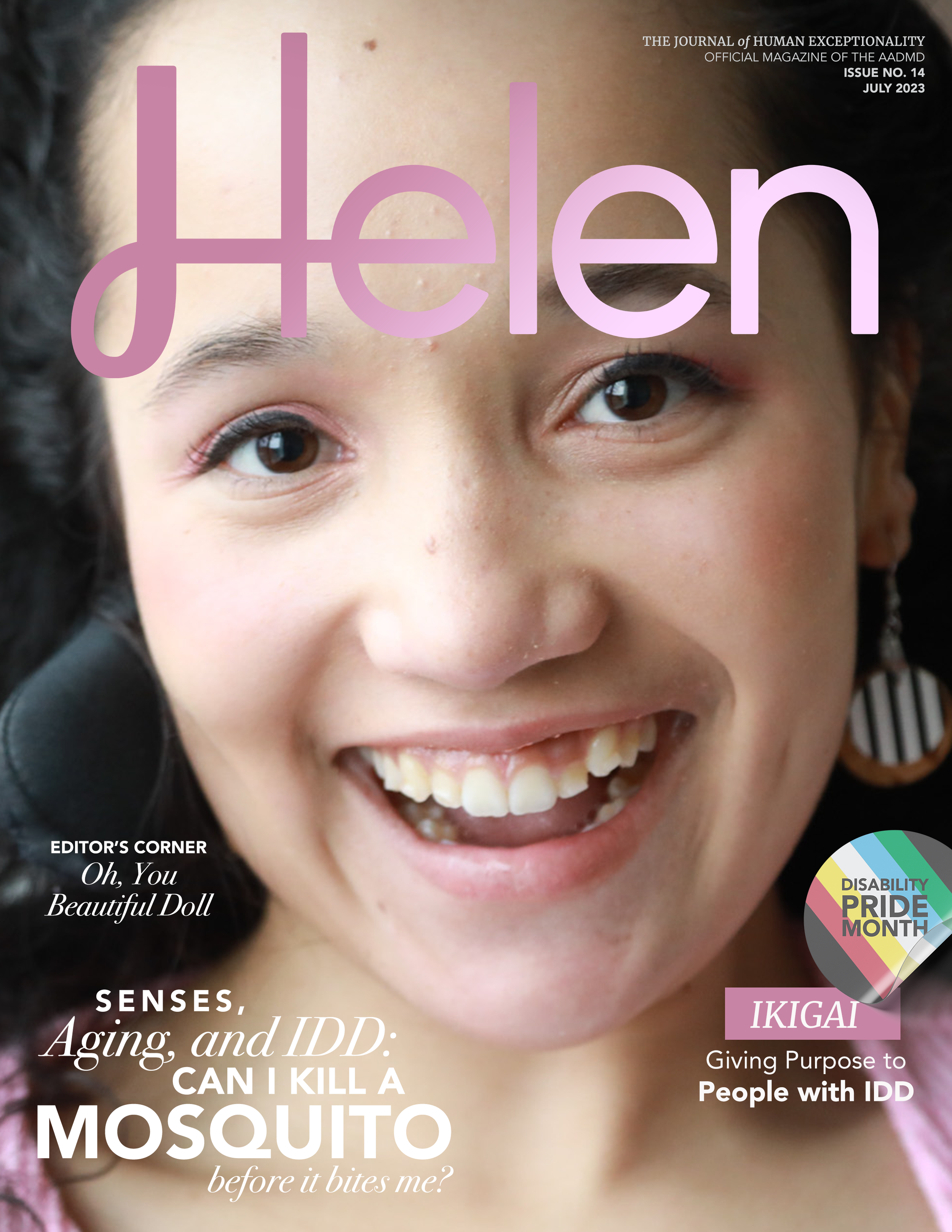Photo Credit: Rick Guidotti for Positive Exposure
The ADA Turns 33: These Truths…
By Neil Romano
2023 marks the 33rd anniversary of the passage of the Americans with Disabilities Act (ADA), an act that was designed to afford people with disabilities all of the legal rights enjoyed by other Americans citizens. Prior to the passage of ADA people with disabilities were relegated to the shadows of everyday American life, marginalized in virtually every major aspect of life from education to employment to healthcare. Before ADA, many government programs for people with disabilities were seen as…
Senses, aging, and IDD: Can I kill a mosquito before it bites me?
by Kathleen M. Bishop, Ph.D., Gerontologist, Consultant, NTG
Our seven senses are what connect each of us to the universe around us and anything that is not us. Infants learn there is a world outside by using the information collected through various cells of the body designed to be receptors of sensory information, among other functions. Once our bodies collect information, it gets sent to the brain where the complex task of sensory processing begins with the brain’s recognition of the sensory information…
Unlocking Behaviors: Dental Health
by Craig Escude, MD and Ley Linder, BCBA
When it came to tennis, 37-year-old Tim was a huge fan. He loved watching how fast the players hit the ball back and forth, especially his favorite player Roger Federer. He knew the general timing of the US Open and other major tennis events and would watch as many matches as possible.vTim enjoyed snacking on almonds and other nuts while watching tennis. One year, during the US Open, he decided he didn’t want almonds and even knocked them off the table a couple of times…
How Teledentistry Helps Patients with IDD
by Lisa Curbow, RDH, BAAS
In recent years, a groundbreaking approach called teledentistry has made dental care more accessible for people with Intellectual & Developmental Disabilities (IDD). Teledentistry uses technology to connect patients with dental professionals remotely, limiting the need for physical in-person visits. This article explains how teledentistry can benefit patients with IDD, providing them with convenient access to quality dental care in the comfort of their own homes. We’ll also discuss how caregivers can play an active role in supporting oral health for their loved ones with IDD…
My experience working on the All Smiles Shine App
by Aliyah Rich
According to the most recent report from the Centers for Disease Control, autism now affects 1 in 36 people. As someone with autism I don’t feel limited, and I don’t want society to think of limitations either when it comes to thinking about the autistic community. To me, being autistic represents a wide spectrum of people from different walks of life with unique interests and skills. Is it only when people choose not to recognize our needs or skills that we truly become limited.
Oh, You Beautiful Doll
by Rick Rader, MD, Editor-in-Chief
“Oh, You Beautiful” was a ragtime love song published in 1911 with words by Seymour Brown and music by Nat D. Ayer. The tune has been recorded hundreds of times by many artists from the first publication until recent times. It’s one of those earworm songs that you can’t get out of your head. For those neuro-minded readers of HELEN, this would be a perfect time to explain how this is the brain’s attempt to fill a gap in the auditory cortex, which is located in the temporal lobe. But this is about dolls not tunes…
Ikigai: Giving Purpose to People with IDD
by Joann E. Douziech B.Ed, M.Ed, M.Cert
Seeking a high quality of life is a common pursuit among people, including people with intellectual and developmental disabilities (IDD). IDD are natural and beautiful presentations of the diversity within humanity. When IDD is valued and respected, people with IDD are viewed as members of society worthy of the dignity and respect assumed for everyone. People with IDD possess unique and complex features that are expressed as an array of gifts as well as challenges. These gifts and challenges are defined and impacted by the context within which each person lives, and in relation to their environment. People with IDD are worthy of and benefit from specialized, intentional, and strategic support throughout their lifespan to ensure their desired outcome of an optimum quality of life…









